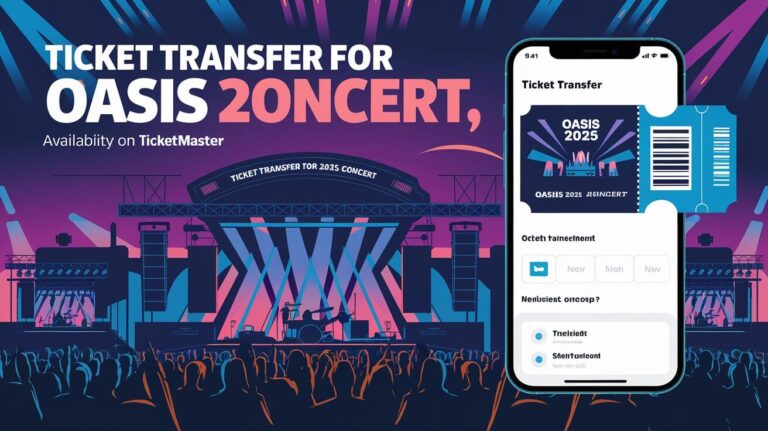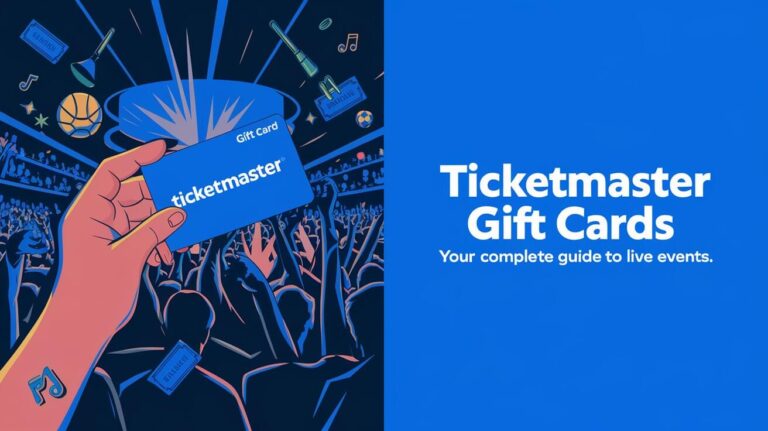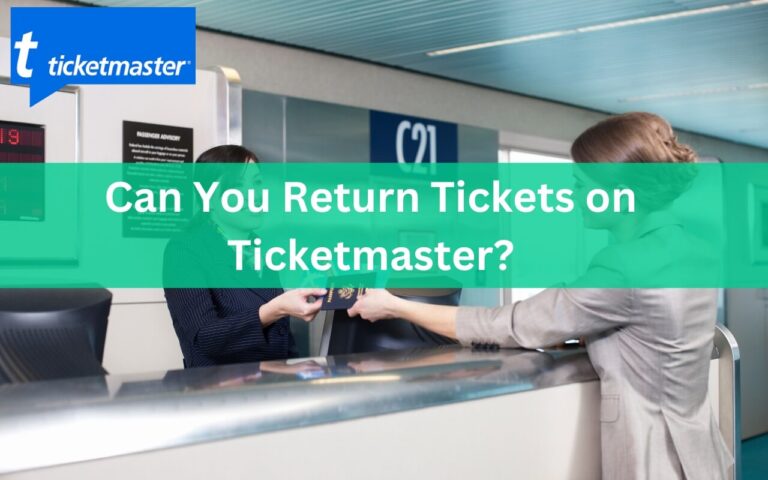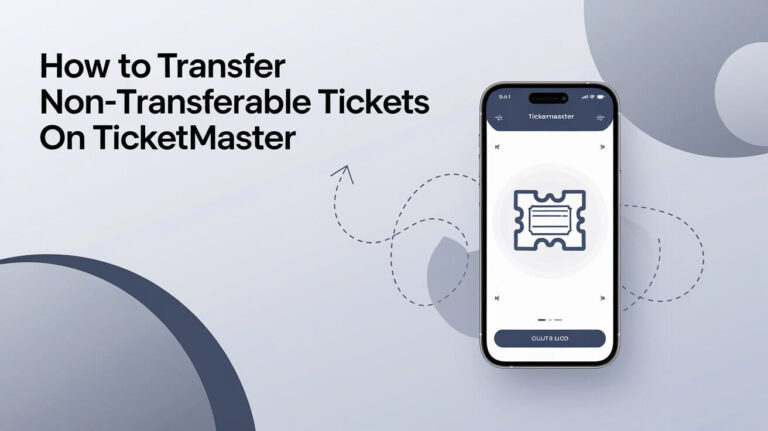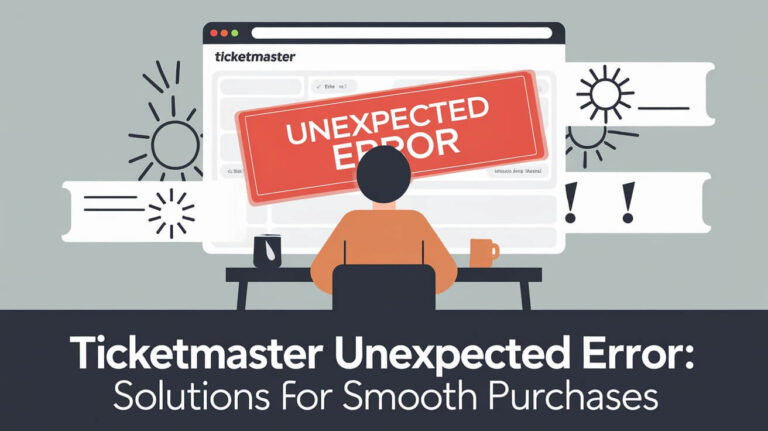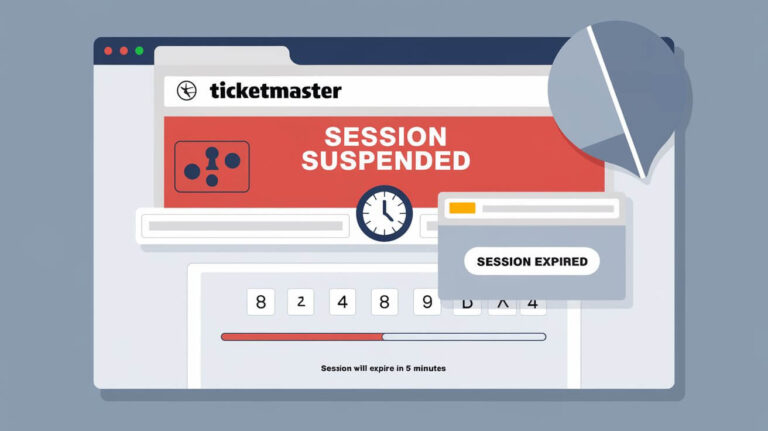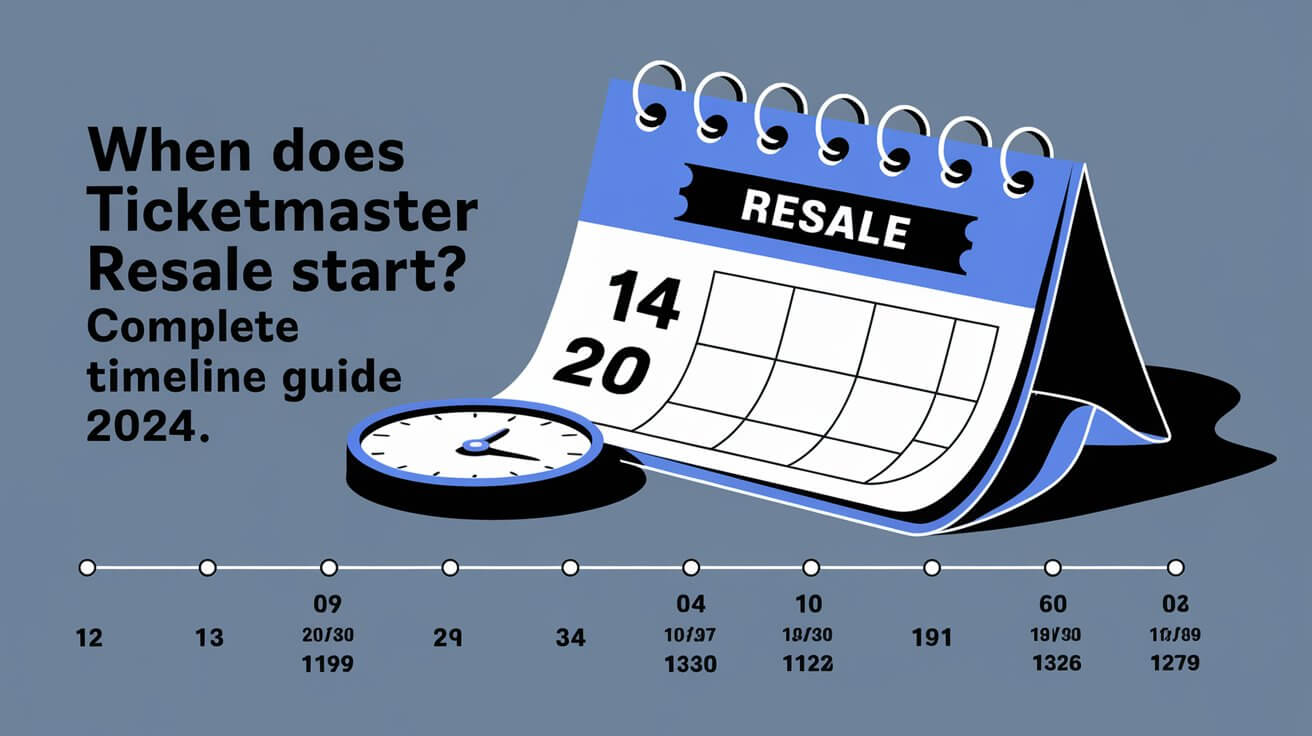
Ticketmaster resale start times vary for each event based on several key factors. The event organizer, artist, or venue decides when to activate resale options for tickets. Some events open resale right after the initial sale, while others might wait until closer to the event date.
Ticketmaster Resale Start Times
Most resale listings appear 48-72 hours after the initial ticket sale ends. However, event organizers can change resale settings at any time. Some concerts and shows never open resale options on Ticketmaster. Others might activate resale just days before the event.
Standard Resale Opening Windows
The typical resale window opens once Ticketmaster processes the original ticket orders. This usually takes about 48 hours. Buyers can list their tickets until one hour after the event starts. The processing time ensures all initial sales clear properly.
Factors Affecting Resale Activation
Several elements impact when resale begins:
- Artist preferences
- Venue policies
- Event type
- Ticket demand
- Local regulations
- Season or time of year
Big concerts and popular events often have stricter resale rules. Some artists limit resale to prevent price gouging. Venues might restrict resale for high-demand shows or special events.
Event-Specific Timing Variations
Recent examples show how timing varies. Mamamoo started resales within the same week of presale. Dreamcatcher tickets only became available for resale the week of the show. Each event follows its own schedule based on organizer preferences.
Artist and Venue Control Over Ticket Resale
Artists and venues hold complete control over resale options. They can turn resale on or off at any point before the event. This flexibility helps them manage ticket distribution and pricing.
How Event Organizers Manage Resale Options
Event organizers can:
- Set minimum resale prices
- Block resale completely
- Limit resale to certain sections
- Change rules at any time
- Control transfer options
These controls help prevent ticket scalping while still giving fans options to resell when needed. Organizers often adjust settings based on ticket sales patterns and demand.
Types of Events With Limited Resale Access
Certain events commonly restrict resale:
- Charity concerts
- Fan club presales
- VIP packages
- Will call tickets
- Special promotional tickets
Premium tickets and exclusive packages usually face more resale limits. These restrictions protect the value of special offers and maintain fair access.
Changes to Resale Availability
Event organizers might change resale rules multiple times. They could open resale briefly, close it, then reopen it later. Fans should check their Ticketmaster accounts regularly for updates on resale status.
Official Ticketmaster Resale Rules
Clear rules govern when and how resale works. All sellers must follow specific timelines and requirements. Understanding these rules helps ensure successful transactions.
Time Limits for Listing Tickets
Sellers can list tickets until one hour after the event starts. Most events remove listings three working days before showtime. This gives buyers enough time to receive and verify their tickets.
Processing Times for Resale Orders
Resale orders take around 48 hours to process. During this time:
- Tickets transfer to the new buyer
- Payment processes
- Verification completes
- Digital tickets update
Larger events might need extra processing time. Buyers should plan ahead for these delays when purchasing resale tickets.
Selling Deadlines Before Events
Most resale listings end three business days before the event. This deadline ensures:
- Smooth ticket transfers
- Complete verification
- Time for customer service
- Clear final attendance lists
Buying Resale Tickets on Ticketmaster
Smart timing helps buyers find the best resale deals. Prices and availability change frequently as the event approaches.
When to Check for Resale Listings
The best times to look for resale tickets:
- Right after initial sales end
- 2-3 months before the event
- 1-2 weeks before showtime
- During the final three days
Prices often drop closer to the event as sellers try to recover their costs. However, waiting too long risks missing out completely.
Price Restrictions and Regulations
Many events set price limits on resale tickets. Sellers cannot list below face value for some shows. Maximum price caps protect fans from extreme markups.
Verification Process Timeline
Ticketmaster verifies every resale ticket. This process includes:
- Checking ticket validity
- Confirming seller ownership
- Updating barcodes
- Transferring digital tickets
Transfer vs Resale Options
Ticket transfers differ from resales. Transfers let original buyers give tickets to others without payment. Resale involves selling tickets through Ticketmaster’s platform.
Differences Between Transfer and Resale
Key transfer vs resale distinctions:
- Transfers: No money changes hands
- Resale: Payment processes through Ticketmaster
- Transfers: Original price stays the same
- Resale: Seller sets new price
- Transfers: Simpler process
- Resale: Full verification required
When Transfer Options Become Available
Many events allow transfers 72 hours before showtime. Some venues open transfers earlier. Others never permit transfers to prevent unauthorized reselling.
Last-Minute Transfer Policies
Last-minute transfers follow strict rules:
- Must complete before event starts
- Need quick verification
- Might face extra restrictions
- Could require venue approval
Common Issues With Resale Timing
Various problems can delay or prevent resale. Knowing these issues helps buyers and sellers plan better.
Why Resale Might Be Unavailable
Common reasons resale stays closed:
- Artist requests
- Venue policies
- Technical issues
- High fraud risk
- Special ticket types
- Event cancellation concerns
Solutions for Delayed Resale Access
When resale delays occur:
- Check account settings regularly
- Contact Ticketmaster support
- Watch for event updates
- Consider transfer options
- Plan alternate sale methods
Event-Specific Restrictions
Different events have unique rules:
- Sports games might open early resale
- Concerts often restrict timing
- Festivals have special policies
- Theater shows vary by venue
- Special events set custom rules
Tips for Successful Ticket Resale
Smart selling strategies improve resale success. Timing and pricing make big differences in sales results.
Best Times to List Tickets
Optimal listing periods:
- Right when resale opens
- During peak search times
- Before price drops start
- After similar tickets sell
- Before final deadlines
Setting Competitive Prices
Price tickets strategically:
- Check current market rates
- Consider face value limits
- Watch competitor prices
- Adjust for demand changes
- Factor in Ticketmaster fees
Meeting Seller Requirements
Required seller steps:
- Add payment method
- Verify bank account
- Provide tax information
- Complete identity checks
- Keep contact info current
Payment and Processing Information
Clear payment rules govern all resales. Sellers must meet specific requirements to receive money.
Payout Timelines
Standard payment schedule:
- 5-7 business days after sale
- Requires verified bank account
- Needs complete tax forms
- Must pass security checks
- Follows federal regulations
Required Documentation
Sellers must provide:
- Social Security Number or Tax ID
- Valid bank account
- Government ID
- Current address
- Contact information
Payment Methods and Verification
Accepted payment options:
- Bank transfers (preferred)
- Debit cards
- Credit cards for refunds
- U.S. accounts only
- Verified payment methods
Ticketmaster resale gives fans safe ways to buy and sell tickets. Success depends on understanding timing, rules, and requirements. Check event details regularly since resale options can change anytime.

